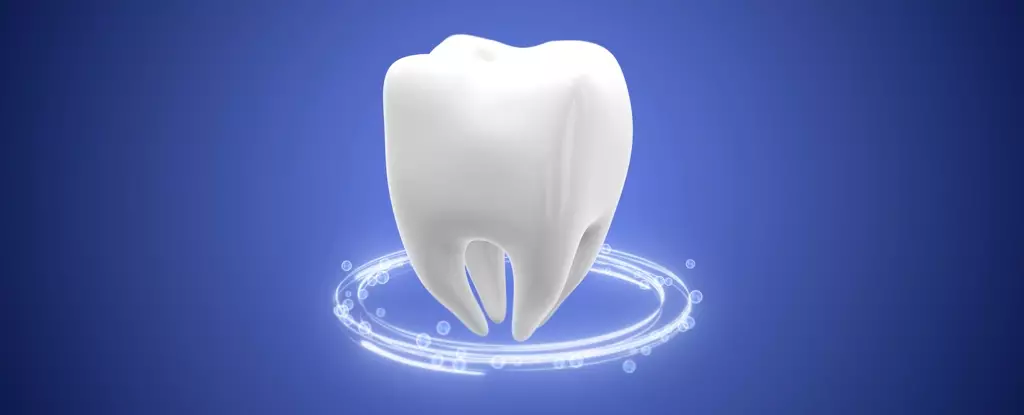The concept of producing teeth in a laboratory sounds like a plot twist straight out of a science fiction horror film, evoking imagery of cold metal instruments and eerie labs. However, cutting-edge research from prestigious British institutions, King’s College London and Imperial College London, paints a picture far removed from horror; one that holds the potential for a brighter, healthier future in dental care. As society finds itself grappling with the limitations and discomforts of traditional dental solutions, the pursuit of lab-grown teeth may just be the beacon of hope we desperately need.
The Science Behind Lab-Grown Teeth
At the heart of this revolutionary idea is a remarkable hydrogel engineered by researchers that boosts communication between cells, thereby enhancing their ability to work in unison to form new tooth structures. This innovation is not merely an academic exercise; it proposes a tangible solution for replacing cavities and other dental damages that plague millions. PhD candidate Xuechen Zhang eloquently articulates the promise of this technology: lab-grown teeth would offer a resilient, biologically compatible alternative to dental fillings and implants, reducing the emotional and physical toll that conventional procedures often entail.
By replicating the natural process of tooth regeneration, much like how our skin heals from an injury, researchers are working toward a future where dental health could become synonymous with self-repair. This concept fundamentally shifts our understanding of oral health, tapping into the body’s innate healing powers, which have been largely overlooked in mainstream dentistry.
Mirroring Nature’s Blueprint
One of the most compelling aspects of this research is its emphasis on mimicking biological processes that already occur within our bodies. Unlike prior attempts that bombarded cells with signals in a single wave, this new hydrogel adopts a more nuanced approach. It gradually releases signals over time, reflecting the ordered rhythm found in nature. By creating an environment that fosters natural cell behavior, researchers are not just creating artificial solutions; they are seamlessly integrating the technology with biological principles.
Furthermore, the quest to replicate this nurturing environment within the complex architecture of a human mouth remains a critical next step. Whether through transplanting cells or using fully grown lab teeth, the potential strategies are as varied as they are promising. Each possibility offers a unique pathway toward achieving what was once deemed impossible—a self-regenerating tooth.
Linking Oral and Overall Health
Beyond the immediate implications for dental aesthetics lies a broader, more profound concern: the relationship between oral health and overall well-being. Oral health issues, including anodontia—the absence of teeth—are increasingly linked to systemic health problems, making innovations in dental science not just relevant, but urgent. As researchers explore remedies like antibody treatments for conditions that stymie tooth growth, we move closer to addressing a critical public health challenge.
It’s crucial to recognize that innovative dental treatments like lab-grown teeth are not just for those who neglect their oral hygiene but hold promise for all individuals. This marks a significant step towards democratizing dental health solutions and ensuring that everyone, regardless of their dental history, can access effective and sustainable care.
A Vision for the Future
As the field of regenerative dentistry progresses, integrating sophisticated techniques may well become the new norm in dental care. Experts, including regenerative dentistry pioneer Ana Angelova Volponi, project a future where traditional methods are aided or even supplanted by biological innovations. This paradigm shift could redefine dental wellness, offering solutions that are long-lasting, less objectionable, and rooted in our biological legacy.
What lies ahead in this journey of innovation is not just the chance to replace damaged teeth but the opportunity to revolutionize how we view oral health holistically. By embracing this frontier, we can foster a society that values the health of one’s mouth as an integral component of overall health—an ideal many of us have long yearned for. The future certainly holds immense promise, inviting us to forge ahead into uncharted waters of possibility, where teeth may grow not just in laboratories, but within us.



Leave a Reply